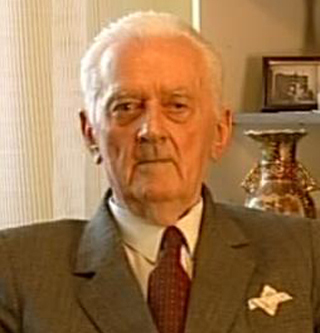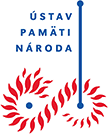Pavel Žigo (1919 - 2006)

Biography
“He said everything about me, but none of it was a lie. He told just the truth, however, at that time people were sentenced for the truth, not for what they were or weren´t supposed to do.”
Pavel Žigo was born on November 10, 1919 in a village Stará Halič, in Lučenec district. He comes from a big peasant family composed of nine members where he was the second child. His origin and the rural hometown formed his character and influenced his life perception and attitude towards society. He finished his high school studies in Lučenec and his university studies at the Slovak University in Bratislava. The population by nationality in his district city was half Slovak, but the other half included Hungarians, Romanies, Jews, and many other ethnic groups. This situation radically formed Pavel´s national consciousness. During his university studies he tried to use all possibilities of education and therefore he attended universities in Prague, Leipzig, and in Bratislava, where he gained a Doctor of Laws degree in 1943. For a certain period of time he worked also at the Ministry of Foreign Trade in Prague. He wasn´t able to do his practice longer than three years, because after the totalitarian communist power came into force in Slovakia, he was investigated by the State Security Service. In 1947 he was unfairly sentenced to twelve-year imprisonment for a military treason. He went through many prisons and labour camps and he also underwent the forced labour in Jáchymov uranium mines. In 1959 he was released under amnesty and after returning home he worked in an air equipment company in Nové Mesto nad Váhom.
As a Young Student...
Pavel Žigo - As a Young Student... (data format Flash Video)
“I was quite well known as a student. My classmates knew me as an uncompromising, radical person and after the Košice Government Program I tried to use my patriotism also to the advantage of Slovakia. Former deputy minister at the Ministry of Foreign Trade in Prague, Eugen Löbl, employed me as a representative for Slovakia. He came from London and he was really an expert in what he did. The situation in Czech wasn´t positive for me, neither for other Slovaks, who left their independent country just to get a leading position at the Ministry of Foreign Trade. During the Slovak State these people used to work independently. Each individual concluded a contract and he didn´t need assistance of any commission in it. And in Czech when they became directors and heads of the divisions, they weren´t able to decide anything by themselves. It was always collective decision-making and that was what actually hindered the whole development.”
A Month before Arrest
Pavel Žigo - A Month before Arrest (data format Flash Video)
“In 1947, a month before I was arrested, a messenger from Laco Jankovič named Otakar Vítkovský visited me and told me he had come to take me and Jozef Staška away. We didn´t go with him. Back then I was such a big “hero” saying: “If it´s necessary, I will even go to a lockup for our nation! But I am not doing anything what could actually get me there!”
Sentenced for Military Treason
Pavel Žigo - Sentenced for Military Treason (data format Flash Video)
“I had the highest sentence - twelve years. Because I knew what were the sentences like at that time, I asked my advocate whether it would be less or more than ten years. He told me: “More”. So I got full twelve years for subverting the Republic according to paragraph two, and also for military treason according to paragraph six. I was condemned in spite of the fact that a military expert, who was called to this hearing, said it was not a case of a military treason. Even though handing a little book of the Košice Government Program to Vítkovský was not considered to be a military treason, I was sentenced for it.”
Forced Labour in Mírov
Pavel Žigo - Forced Labour in Mírov (data format Flash Video)
“Well, we really worked very hard in Mírov. We had to pay for our stay just because we didn´t accomplish the norms. For example, I was supposed to fix one thousand six hundred clips on tags that were made and I managed to fix only four hundred of them. Since I didn´t do it the first month, they somehow excused me, but when I didn´t manage it the second month, I had to pay because of my clumsy hands, hands that never had any exact feeling in the fingers. I had to pay my stay at Ruzyň prison for four or five months from what I had saved during the work at labour camps, when working at the building constructions.”
Strict Isolation in Labour Camps
Pavel Žigo - Strict Isolation in Labour Camps (data format Flash Video)
“At Ruzyň we were in such a strict isolation that no one could know who we are, what we are, why we are there, etc. We couldn´t get into contact with men destined for disposal (acronym for such a person is “MUKL” = muž určený k likvidácii – translator´s note). Also at Mírov we were strictly guarded; the officers even brought us the food to places where we worked.”
Bitter Moments
Pavel Žigo - Bitter Moments (data format Flash Video)
“I experienced very bitter moments especially at the time when my wife left me. I was in such a position that I couldn´t believe how is that possible after I had survived different kinds of punishments, after I had overcome all sleeping on a concrete floor, horrible living conditions, portions of food each third day. All of this was the correction. I have experienced almost three years of such correction punishment and I was sentenced to it not because I had done something wrong, but because I was really dangerous for them. My investigator came and asked me: “Why were you so important for your colleagues?” I answered: “You are the one who is asking me? How dare you?! Perhaps you made me look like that but I know nothing about being the way you are saying.”
Coming Home after Twelve Years
Pavel Žigo - Coming Home after Twelve Years (data format Flash Video)
“My return happened in a way I have already mentioned. They couldn´t let me go from Mírov so they drove me through Olomouc to Ruzyň, a prison in Prague. At Ruzyň a prosecutor called me and told me I would be released under amnesty in few days. It took almost a week until they freed me. The Ruzyň commander didn´t want to let me go in what I wore. He insisted they had to buy me new clothes so that I wouldn´t go home in such torn clothes. But I said: “I am not ashamed, I am a political prisoner and because you made me look like this, I will go and show everyone how you treated us.” This is what I dared to say and until today I haven´t forgotten what he replied: “If it was up to me, you would never go home.””
